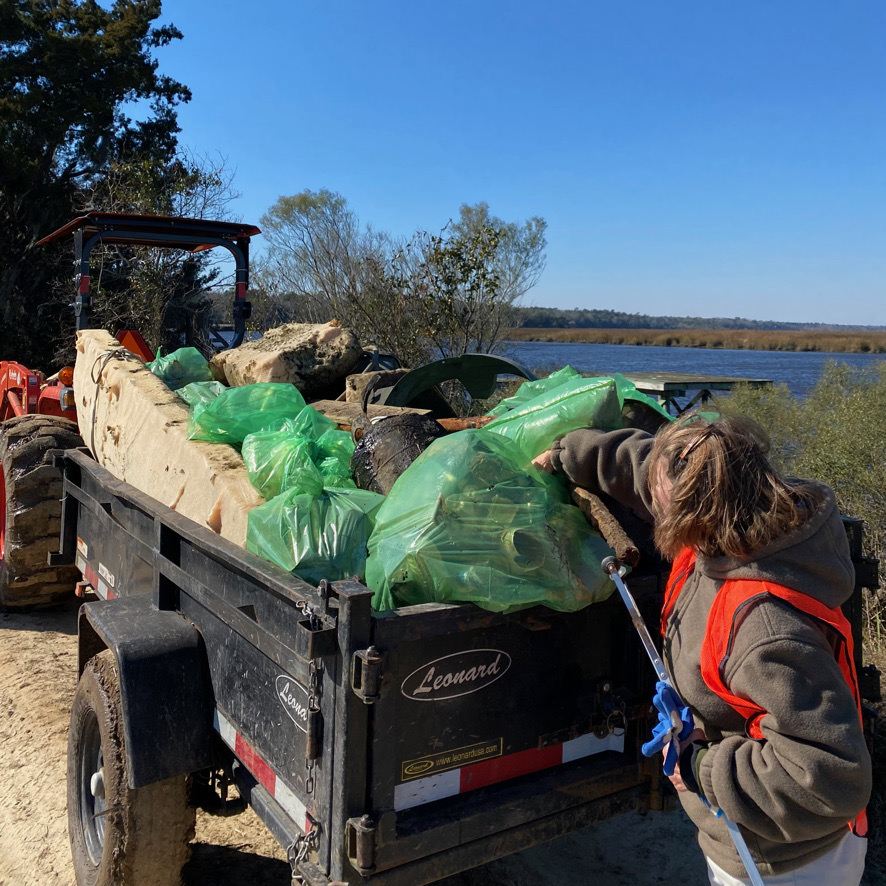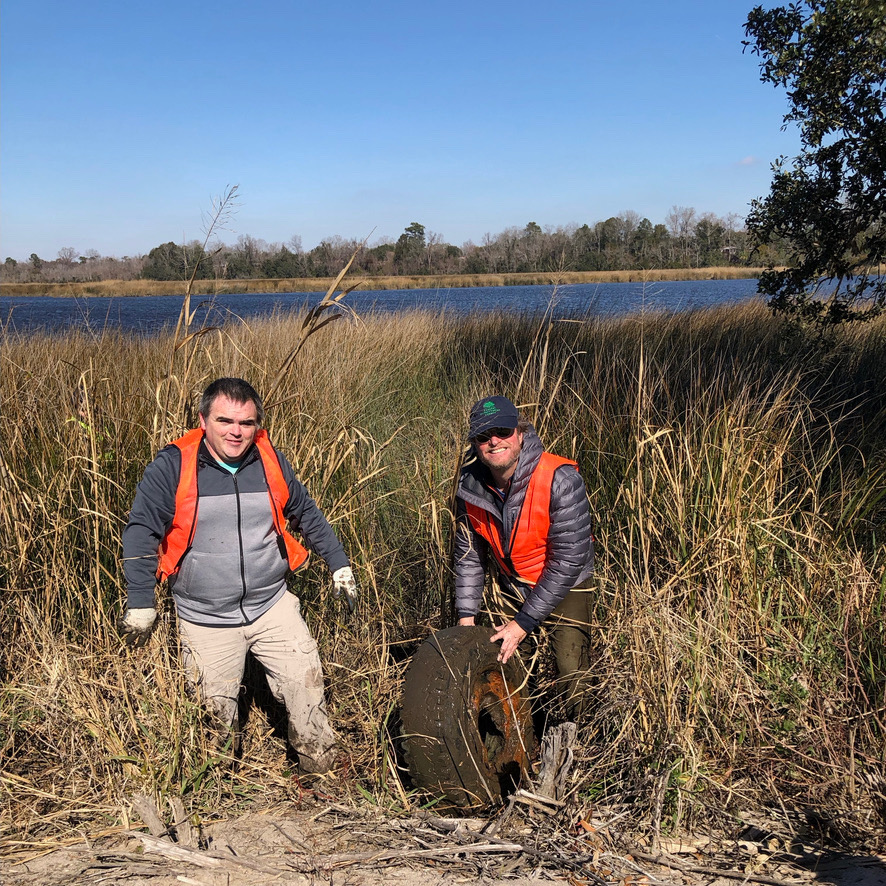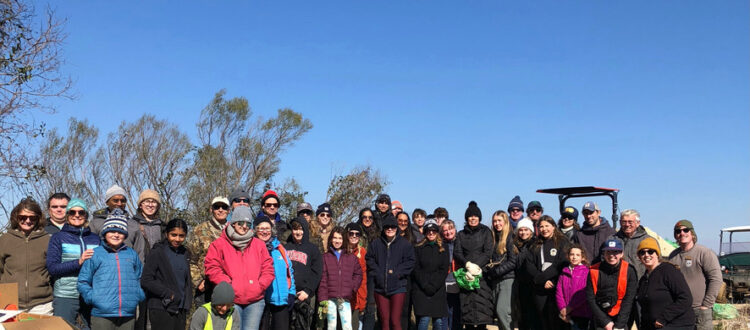2024 Ashley River Cleanup at Magnolia Plantation & Gardens

On Saturday, January 20th, 45 Charleston Waterkeeper volunteers ventured into the marshes of the Ashley River for a cleanup at Magnolia Plantation and Gardens. Despite the chilly weather, our volunteers bundled up and hauled tires, shoes, styrofoam, and plastics of all sorts out of the marsh, removing an estimated ~1,300 lbs of debris, which is the most debris we have removed since starting this annual cleanup years ago.
Not only did our volunteers show up for their waterways – they had the opportunity to engage with the history and unique ecology of Magnolia Plantation and Gardens. Several members of Magnolia’s’ staff joined us in the clean up effort, including Magnolia Ecologist James Wilson and property owner Winslow Hastie and family. The Hastie family has owned Magnolia Plantation and Gardens since the late 1670s, and he and Wilson spoke with us to share their knowledge about the property’s wildlife and historic significance. Several of the impoundments on the property were once highly productive rice fields created and operated by enslaved peoples using their local knowledge of rice cultivation. These impoundments are important reminders of how enslaved labor continues to shape our environment today.
According to Hastie, the reservoirs at Magnolia are now home to alligators and a diverse group of bird species: “We’re really well known for wading birds, song birds…waterfowl…We have a big rookery on the property [with] Herons, Anhingas, and Egrets…a lot of Ibis…several nesting pairs of Bald Eagles here…it’s filled with bird life.”
Hastie highlighted how this cleanup plays an important role in efforts to protect these habitats: “With sea level rise and the intense tides that we’re getting, we are seeing an increase in trash washing up and an overwhelming amount of debris piling up in the marsh, that’s why this is so important to us.”
Magnolia Ecologist James Wilson explained how increased marine debris from rising tides is detrimental to wildlife they are trying to protect: “Wading birds use Magnolia as a rookery. During nesting season, they naturally look close by for food such as the marsh and impoundment at the cleanup site. Additionally, once the young fledge from the nests this is an important area for them to get easy meals exposing them to the trash.”
Drainage infrastructure was recently upgraded to better control water levels in the impoundments and promote native grass growth. However, Wilson mentioned how the impoundments are subject to pollution, further highlighting the importance of cleanups like these. “The ability to control water levels in our impoundments is especially important for the smaller shorebirds by providing constant spaces for feeding, since natural mudflats are only accessible during low tides. We’re taking that water straight from the river through the rice trunks…I am positive that trash is getting in through there…when we lower water levels to have exposed mudflats for foraging, this will be where the trash collects and accidental ingestion or entanglements can occur.”
Cleaning up the marsh along the Ashley was not only a chance for the community to clean up our rivers and marshes, but to protect the diverse species living there. Charleston Waterkeeper is grateful to the Hastie family for helping arrange this cleanup, to the Magnolia team for their conservation work, and to our amazing volunteers who are always showing up for our waterways.
Want to join us on our next cleanup? Sign up Here!
Want to learn more about Magnolia? Click here!


